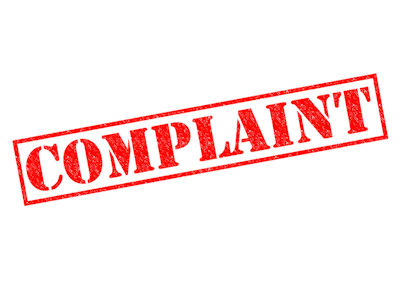Too often, marketers and customers service professionals view customer service problems as just that – a problem, or even worse as a nuisance or a bother. It’s time that we take a new perspective on this matter and realize that customer complaints and criticisms are opportunities for your business to refine what it does and how it takes care of the needs of its customers.
The customer complaint reality
Mobile technology and social media has created a simple, easy and broad-reaching channel by which customers can formulate a complaint about your business. When a customer lodges a complaint, there is usually a degree of validity to their concerns that you need to address. Until you do your due diligence you have no way of knowing if a complaint is valid or not. Thus, it’s imperative that all complaints be treated as legitimate from the very start.
Companies need to understand that customer complaints provide a “window into the eyes of your customers”. In many ways, a complaint should be viewed as a breakdown in the ‘agreement’ between customers and businesses that governs the expectations of each party for what they deem to be acceptable (i.e. service, product quality, etc.).
When this pledge breaks down in the eyes of the customer, when there is a gap between what they’ve expected to receive from a business and what is actually delivered, they will complain as a way to close this gap and get what they perceive to be the full value for a given transaction.
Reading between the lines
When I think of the one thing most businesses need to consider when looking at the complaints they receive from their customers, I often think of the notion of “reading between the lines”. Too many companies take complaints strictly at face value, often times taking offense to their ‘petty’ nature.
Instead, you should take a contrarian approach to these concerns that are being vocalized to you. In doing so, you should be asking yourself and your employees the following questions:
- - Are these complaints indicative of a more deep-seeded and persistent problem within your business, its processes and procedures and how it treats its customers?
- - Are there unrealistic expectations on the part of your customers when it comes to what they feel they should be receiving from you in the areas of service, quality, guarantees, etc.?
- - Is there a gap between your service or product ‘promises’ (as defined by your marketing messages) and what you are realistically capable of delivering?
- - Is there a recurring theme of complaints in a given area, process or product? Have you made the effort to deep dive into these to determine if there is an inherent flaw with any of them?
- - Do your complaints come primarily from a specific sub-segment of your customer base, and are these your best customers? Is the theme for these complaints fairly consistent over time?
- - Have you noticed a change over time in the volume, type and nature of your customer complaints?
Setting the stage for success
As you can plainly see from the above points, customer complaints need to viewed as an opportunity to identity some inherent shortcomings with your business, as a means to engagement with your customers on a more intimate level and to resolve flaws with your business model.
Companies that are brave enough to look at their customer complaints in this light are those that are truly focused on innovation; on evolving and enhancing the manner in which they service their customers.
Those that don’t treat complaints in this positive and constructive manner may be leaving a lot on the table so to speak when it comes to finding ways to make incremental changes to their business to improve the way in which they meet the needs of their customers, and thus improve their bottom line.
Businesses of all sizes and shapes need to look at customer complaints as a tool to refine their business and the way they service their customers. Steer away from that gut reaction that makes you look at complaints in a negative light and force your team to look at them as an opportunity to do things better than your competitors.
Do this and you will then be on the road to developing a mindset for continuous improvement within your organization. Feel free to contact us if you need help redefining how you should approach your customer complaints and the means by which you should implement a communications and customer care plan that enables you to deal with these issues in a more positive and constructive way.






